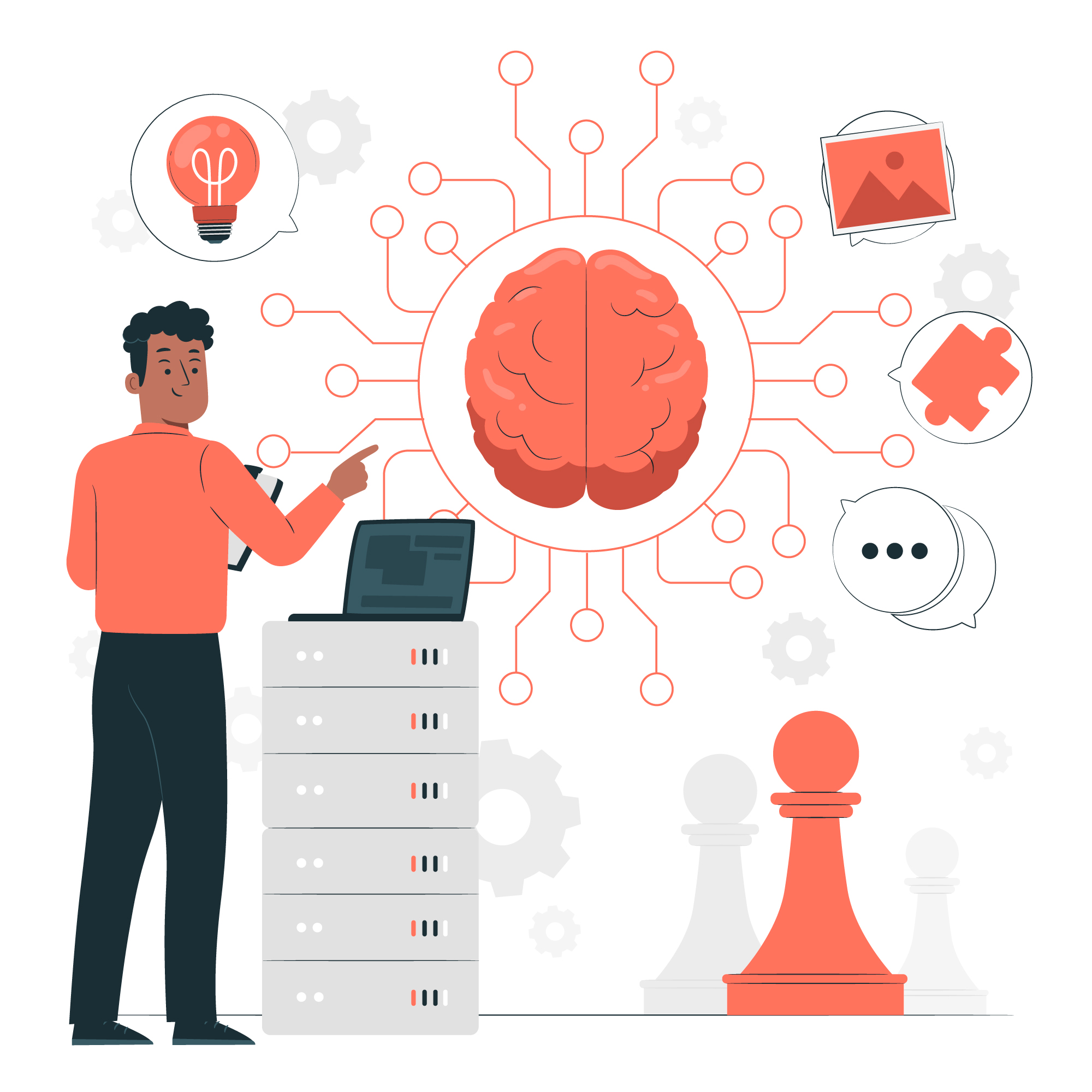Introduction
AI is rapidly becoming a force to reckon with in the modern world. Undoubtedly AI is touted to be instrumental in enabling Industry 4.0 for organizations of all shapes and sizes across all verticals.
Part of the reason behind this is the existence and availability of great open-source projects related to it. Open source AI includes datasets, prebuilt algorithms, and ready-to-use interfaces to help you get started with AI app development. Many developers now prefer open-source AI frameworks over proprietary APIs and software.
Open-source AI projects have democratized access to cutting-edge technology, encouraged collaboration among experts in the field, and enabled the development of sophisticated AI solutions to address real-world problems.
Although the use of AI applications is continuously expanding, tech enthusiasts must stay up with this fast-changing sector. In light of the growing demand for AI and ML skills, it helps if you have a few real-world projects under your belt.
This is where trying out open source projects comes into picture. When you work on projects, it shows potential employers that you have the drive and knowledge to get handsy with these technologies.
In this article, we will thus, discuss some excellent open source projects for you to try out and contribute to.
Open Source AI Projects
TensorFlow: It is one of the top-rated open source AI tools for developing machine learning and deep learning applications. You can use it for the purposes of designing text, audio and picture recognition algorithms. It can be deployed on various platforms, including servers, the cloud, mobile, edge devices, browsers, and more.
PyTorch: This is one of the best open source ML projects. Unlike TensorFlow, PyTorch employs dynamic computing, which provides greater flexibility in creating complex networks. It makes use of basic and well-known Python, which has a better readable syntax, making it much easier to grasp.
Keras: This is a high-level neural network framework that operates on the top of tools like TensorFlow. If you require a Deep Learning framework that allows for quick prototyping, Keras can support both convolutional and recurrent networks, and operates well on CPUs and GPUs.
Detectron2: This is an updated version of Detectron, an object detection library developed by Facebook AI in 2018. To do this it uses boxes, instance segmentation masks and human pose prediction. It can also support semantic segmentation and panoptic segmentation.
Theano: Theano is a Python library that aids in using NumPy or SciPy to perform mathematical operations on multi-dimensional arrays. It can also leverage GPUs to speed up processing and can create symbolic graphs automatically to compute gradients.
MXNet: MXNet stands for mix-network since it was created by merging diverse programming methodologies into a single framework. It is meant for deep learning applications and can be used for defining, training, and deploying deep neural networks.
OpenCV: Short for Open Source Computer Vision Library, it is a powerful tool for computer vision applications, including video analysis, CCTV analysis, and picture analysis. It can be used for distinguishing faces in images or movies, identifying objects, and characterizing human emotions and behavior in videos.
Fastai: Fastai is well-known for implementing deep learning and machine learning techniques. It combines Keras’ clarity and development speed with PyTorch’s customizability. The library includes APIs for vision, text, tabular and time-series analysis, and collaborative filtering.
TFlearn: TFlearn is a modular and transparent deep learning library, built on top of TensorFlow. It allows non-specialists to work on developing projects through the use of a general-purpose, high-level language and enables researchers to develop, benchmark, and compare their novel methods.
HuggingFace Transformers: Transformers support framework interoperability between PyTorch, TensorFlow, and JAX. The HuggingFace libraries provide user-friendly APIs for creating custom models from scratch or fine-tuning pre-trained models for various transformer-based models.
Conclusion
Open-source AI is reshaping enterprise scalability and transformation. The last few months have been explosive for open source AI projects, with incredible creators sharing their work. Ultimately, your choice of technology will come down to your unique software development need.
The top ten technologies we listed promise a large developer community for support, regular enhancements and iterations. They are also battle-tested in real-world scenarios. We hope you will find them useful and take up a great open source AI project to contribute to.
